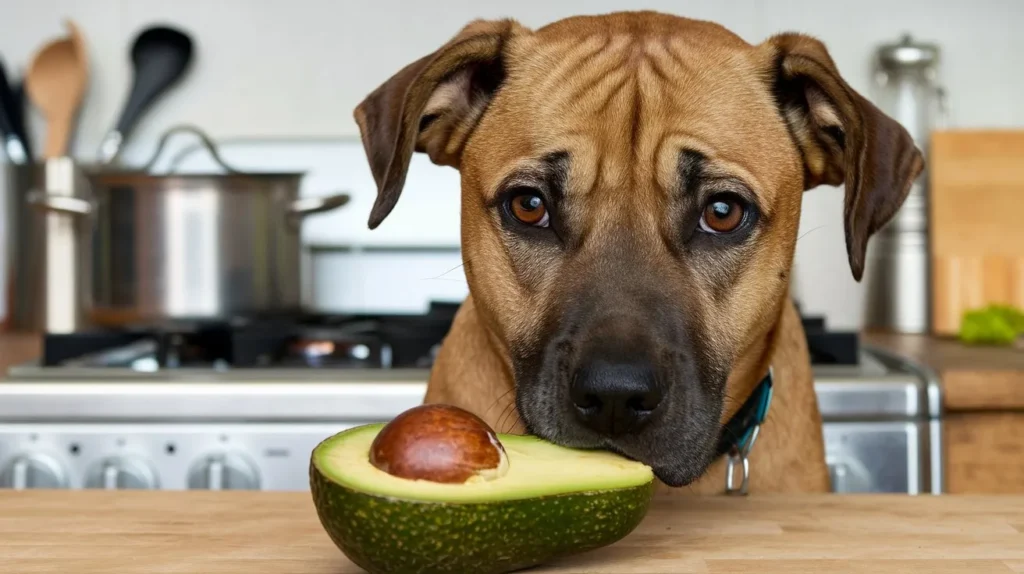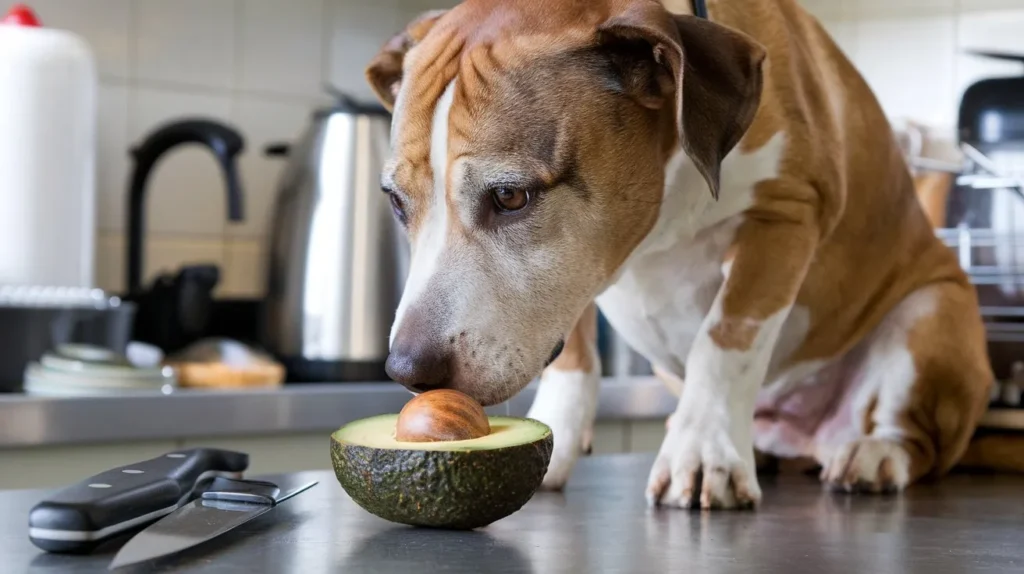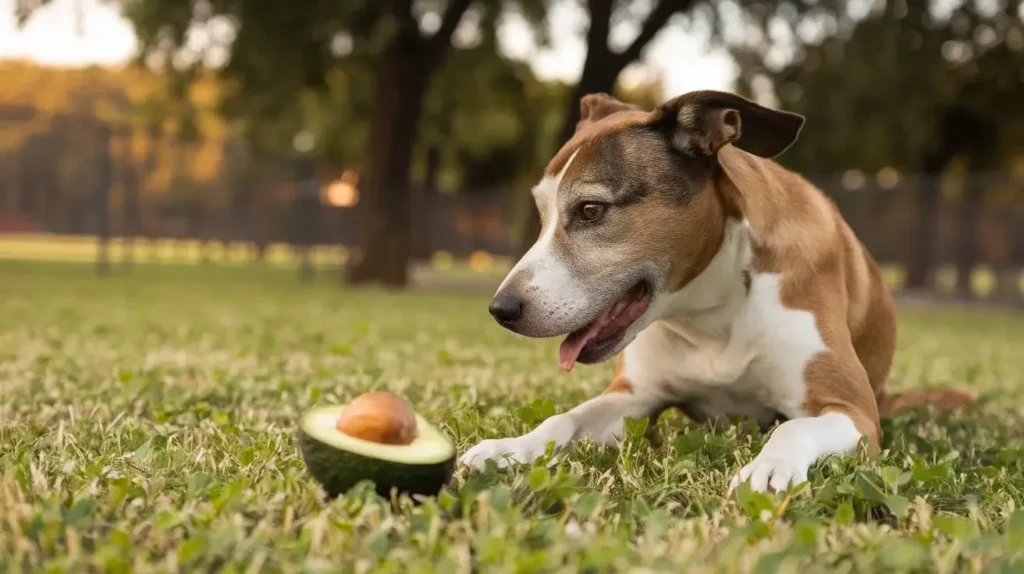Introduction: The Avocado Dilemma for Dog Owners
As a dog parent, you might have pondered, “Can dogs eat avocado?” This question extends beyond simple curiosity; it plays a vital role in safeguarding your dog’s health and overall well-being. In this comprehensive guide, we’ll delve deep into the world of canines and avocados, exploring everything from potential benefits to hidden dangers. By the end, you’ll have a clear understanding of whether you can safely share this popular fruit with your four-legged companion.
The Nutritional Profile of Avocados: A Double-Edged Sword
Before we answer the burning question, “Can dogs eat avocado?” let’s take a closer look at what makes this fruit so unique. Avocados are renowned for their rich nutritional content, boasting:
- Healthy fats
- Fiber
- Vitamins (K, C, B6, and E)
- Minerals (potassium, folate, and copper)
While these nutrients are beneficial for humans, the story is a bit more complicated when it comes to our canine friends. The key to understanding whether can dogs eat avocados lies in examining both the potential benefits and risks.

Can Dogs Eat Avocado? The Risks and Concerns
When it comes to the question, “Can a dog eat avocado?” it’s essential to consider the potential dangers. While avocados aren’t entirely toxic to dogs, they do contain a substance called persin, which can be harmful in large quantities.
The Persin Problem
Avocados contain an agent that is toxic to many animals, called persin, the fungicidal toxin found in higher concentration within the leaves, bark, and pit of this fruit. It makes dogs less sensitive than birds or horses, for example; however, it can cause a problem when ingested in large amounts.
Potential risks of persin consumption in dogs include:
- Vomiting
- Diarrhea
- Gastrointestinal irritation
- In severe cases, pancreatitis
It’s important to note that the flesh of the avocado contains less persin than other parts of the plant. However, this doesn’t mean it’s entirely safe for dogs to consume.
Choking Hazards and Intestinal Blockage
Another significant concern when considering “Can dogs eat avocado?” is the potential for choking or intestinal blockage. The large pit of the avocado poses a serious risk if swallowed, potentially leading to:
- Choking
- Esophageal obstruction
- Intestinal blockage
These situations can be life-threatening and may require emergency veterinary intervention.
High Fat Content
While the healthy fats in avocados are beneficial for humans, they can be problematic for dogs, especially when consumed in large quantities. Dogs’ digestive systems aren’t designed to process high amounts of fat, which can lead to:
- Gastrointestinal upset
- Weight gain
- Pancreatitis (in severe cases)
This is particularly concerning for dogs that are already overweight or prone to pancreatic issues.
Can Dogs Eat Avocado Oil? A Safer Alternative?
Given the concerns surrounding whole avocados, you might wonder, “Can dogs eat avocado oil?” The good news is that avocado oil is generally considered safer for dogs than the fruit itself. Here’s why:
- No persin: The oil extraction process removes the persin, eliminating this particular risk.
- No choking hazard: There’s no pit or skin to worry about with oil.
- Controlled portions: It’s easier to regulate the amount of fat your dog consumes.
However, it’s crucial to remember that avocado oil is still high in fat. While a small amount occasionally may be safe, it’s not recommended as a regular addition to your dog’s diet. Always consult with your veterinarian before introducing any new food or supplement to your pet’s regimen.

The Verdict: Can Dogs Eat Avocados Safely?
After weighing the risks with the apparent benefits, avocados are not completely toxic to dogs, but also are not recommended as regular treats or food items. Potential risks that can occur outnumber the nutritional benefits considering there is often another way for your dog to get the same nutrients in other and less hazardous ways.
Here’s a summary of our findings on whether can dogs eat avocado:
- Small amounts of the flesh may not be immediately harmful, but it’s best to avoid it.
- The pit, skin, and leaves are definite no-nos due to high persin content and choking hazards.
- Avocado oil may be safer but should still be used sparingly and only with veterinary approval.
Safe Alternatives: Healthy Treats for Your Canine Companion
Instead of wondering, “Can dogs eat avocados?” look into these safer, dog-friendly alternatives that offer similar nutritional benefits:
- Blueberries: Rich in antioxidants and low in calories
- Carrots: Crunchy and full of fiber and vitamins
- Sweet potatoes: A great source of vitamins and minerals
- Apples (without seeds): Crisp, refreshing, and full of fiber
- Pumpkin: Excellent for digestive health and rich in nutrients
These options provide a range of nutrients without the risks associated with avocados.
What to Do If Your Dog Eats Avocado
Despite our best efforts, accidents can happen. If you find yourself in a situation where your dog has consumed avocado, here’s what to do:
- Assess the amount eaten: A small bite of flesh is less concerning than ingestion of the pit or large quantities.
- Monitor for symptoms: Watch for signs of gastrointestinal distress, such as vomiting or diarrhea.
- Check for choking: If you suspect your dog has swallowed the pit, watch for signs of choking or discomfort.
- Contact your veterinarian: When in doubt, always consult with a professional, especially if your dog shows any unusual symptoms.
Remember, it’s always better to err on the side of caution when it comes to your pet’s health.
Expert Opinions: What Veterinarians Say dogs can eat avocado
To provide a well-rounded perspective on the question, “Can dogs eat avocado?” we’ve consulted with veterinary experts. Here’s what they have to say:
Dr. Sarah Thompson, DVM, states, “While avocados aren’t as toxic to dogs as they are to some other animals, I generally advise against feeding them to pets. The potential risks, particularly from the pit and high fat content, outweigh any nutritional benefits.”
Dr. Michael Rodriguez, a canine nutritionist, adds, “If you’re looking to boost your dog’s intake of healthy fats, there are safer alternatives specifically formulated for canine nutrition. Always seek advice from your veterinarian before implementing any major alterations to your dog’s diet.”
These expert opinions reinforce the importance of caution when it comes to dogs and avocados.
Myth Busting: Common Misconceptions About Dogs and Avocados
Let’s address some common myths and misconceptions surrounding the question, “Can dogs eat avocado?”:
- Myth: A little bit of avocado is always safe. Truth: While small amounts may not cause immediate harm, it’s best to avoid it altogether due to potential risks.
- Myth: Avocado oil is completely safe for dogs. Truth: While safer than whole avocados, it should still be used sparingly due to its high fat content.
- Myth: The flesh of the avocado is toxic to dogs. Truth: The flesh contains less persin than other parts of the plant, but it can still cause issues if consumed in large quantities.
- Myth: Cooking avocados makes them safe for dogs. Truth: Cooking doesn’t eliminate the risks associated with high fat content or potential persin ingestion.
Understanding these facts helps pet owners make informed decisions about their dogs’ diets.

The Importance of a Balanced Canine Diet
While it’s tempting to share our favorite foods with our furry friends, it’s crucial to remember that dogs have specific nutritional needs that differ from humans. Instead of asking, “Can dogs eat avocado?” concentrate on delivering a well-rounded diet tailored to your pet’s specific needs.
Key components of a healthy canine diet include:
- High-quality protein sources
- Appropriate amounts of fat
- Complex carbohydrates
- Essential vitamins and minerals
- Adequate hydration
Consult with your veterinarian to develop a diet plan tailored to your dog’s age, size, breed, and health status.
Conclusion: can dogs eat avocado
Can dogs eat avocado? As it has been established, there is no straightforward answer to this question, and for that reason, the best approach is a conservative one. There are several risks possible from avocado consumption in dogs: there’s the toxic persin, the choking hazards, and the component of high fat. In light of all that, such risks outweigh any benefits that may be encountered from feeding dogs avocado.
First of all, as responsible pet owners, we need to take great care regarding the health and wellbeing of dogs. This calls for:
- Sticking to dog-specific foods and treats
- Consulting with veterinarians before introducing new foods
- Being aware of potential hazards in human foods
- Focusing on a balanced, nutritionally complete diet
Remember, there are plenty of safe and healthy alternatives to meet these nutritional benefits equitably without the risks noted herein. A little informed choice on what your dog eats contributes a lot to a long, happy, healthy life for your furry friend.
So, the next time you are having that delicious avocado toast or guacamole, just refrain from the urge to share with your pup. Instead, offer the dog some other friendly treat and rest easy knowing you’re making the best choice for their health and safety.








